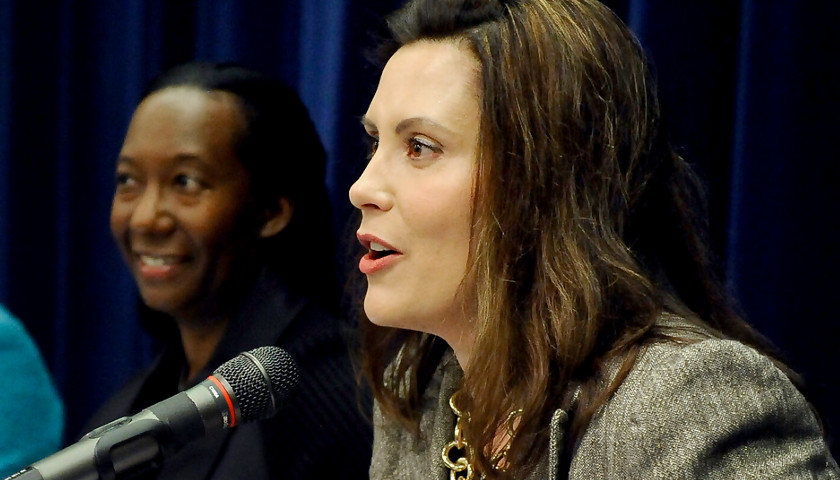by Scott McClallen
Gov. Gretchen Whitmer has issued Executive Directive 2021-02, which will establish the Michigan High-Speed Internet Office (MIHI) with the intent of improving costs and access to high-speed internet.
The governor pointed to the ongoing pandemic as the precipitating event that necessitated the order.
“COVID-19 has only confirmed how the lack of high-speed internet access can cause too many Michiganders to struggle in their ability to engage in online learning, to use telemedicine to seek needed healthcare, to search for a new job or to take advantage of all the online resources,” Whitmer said in a statement. “A fully connected Michigan is essential for our state to reach its economic potential in the 21st century global economy.”
More than $2.5 billion in potential economic benefit is left unrealized annually due to unreliable internet access. The divide includes the hundreds of thousands of households not yet reached by high-speed internet infrastructure and an estimated 865,000 households who can’t afford services.
However, neither Whitmer’s office nor the Department of Labor and Economic Opportunity (LEO), where MIHI will be housed, would answer inquiries about how the plan’s cost or why lawmakers in the Republican-controlled Legislature weren’t involved with its creation.
The state found in 2018 that about 368,000 rural Michiganders did not have broadband access. A Brookings Institute study found 70 of Michigan’s 83 counties to have connectivity rates, which is below the national average. Another report found nearly 2 million Michigan households (48%) have access to only one fixed, terrestrial internet service provider.
Jeremy Dalrymple, a research associate at the Washington, D.C.-based Heritage Foundation, told The Center Square that Michigan should simplify service cost to consumers.
Dalrymple said one of the best ways to do this is by removing barriers to entry and other regulations like the cost to dig, right-of-ways, and additional fees to get online. Internet services such as Starlink and Facebook Connectivity provide wireless internet, partially by harnessing satellites and other cheaper solutions.
“These innovative technologies are a way to get around the problem of connecting people in rural America who are so far away from central hubs that it’s cost-prohibitive to lay new cable for them,” Dalrymple said in an interview.
If Starlink and Facebook are successful, they could reach roughly 3.8 billion people worldwide without internet access.
Increasing opportunities to get connected has various benefits, including for education, small businesses, senior citizens, and rural development.
“Bridging the digital divide is a critical need for our state’s rural communities, Main Street businesses and agriculture sector, and we appreciate Governor Whitmer’s commitment to ensure state government is unified in its approach to tackling this challenge,” Chuck Lippstreu, president of the Michigan Agri-Business Association, said in a statement. “We look forward to working with the new Office of High-Speed Internet to share agriculture’s unique perspective and do our part to connect Michigan.”
In December, The Federal Communications Commission promised $9.2 billion to internet providers nationally, including $363 million to expand service in Michigan to nearly 250,000 sites in 81 counties.
Rep. Michele Hoitenga, R-Manton, criticized Whitmer for vetoing a broadband bill in April.
“It’s important to prioritize broadband access. I have done so, but these plans are tone deaf and create additional issues,” Hoitenga said in a statement. “Gov. Whitmer announcing this initiative in Detroit – which already enjoys more broadband access than much of rural and northern Michigan – shows she’s missed the mark with her approach to this problem. The answer to every problem is not more government.”
– – –
Scott McClallen is a staff writer covering Michigan and Minnesota for The Center Square. A graduate of Hillsdale College, his work has appeared on Forbes.com and FEE.org. Previously, he worked as a financial analyst at Pepsi.
Photo “Gov. Gretchen Whitmer” by the Gerald R. Ford School of Public Policy, University of Michigan CC BY-ND 2.0.








